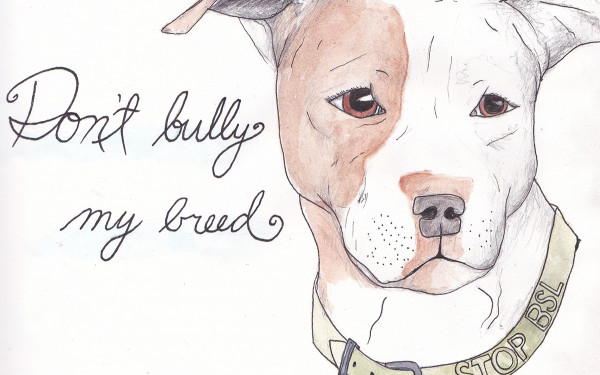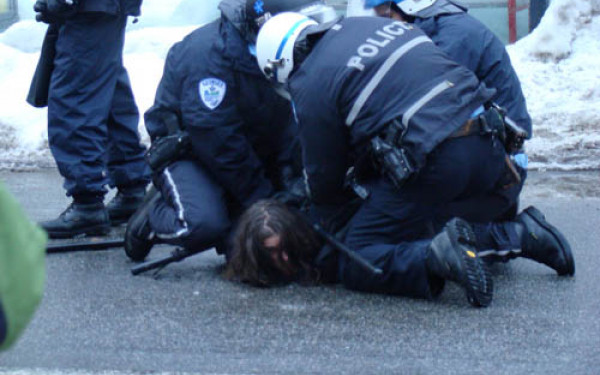Montreal Doesn’t Respect Animals
A Summer of Animal Cruelty Puts the City’s Ethics Into Question
A few years back, a friend of mine from Newfoundland told me she had once considered Montreal for grad school, but just couldn’t get a feel for the city. It wasn’t for her, she told me.
I couldn’t understand what she meant: I’m a Montrealer through and through. Having lived here my whole life, I’ve developed a deep appreciation for what this city has to offer: relatively affordable education and housing, an endless list of cultural institutions that can keep you occupied even on a cold January day, green spaces that allow you to forget that you’re in the middle of Quebec’s largest city and a (generally) friendly population.
But this summer, I felt that love waver because, frankly, this city sucks for the animal population.
On Monday, a Superior Court judge suspended letters that had been sent to 520 pit bull owners saying they had four weeks to get rid of their pets.
The letters, sent out during the last week of August, came after almost a year of protests against the city’s new pit bull banning by-law. Many of the residents who received such letters say they spent nearly $500 obtaining the documents necessary to register their dog, which would allow them to be grandfathered-in.
So despite doing everything right (including the criminal background check), many were still told that their animals needed to be moved to a municipality where this dog breed is allowed.
To this, Montreal Mayor Denis Coderre said that owners shouldn’t be surprised about receiving these letters—they had been warned, after all. And as the registration period had been extended by three months, he explained, it was time to implement the by-law.
Let it sink in, however, that just three days before these letters went out, the city of Chateauguay, just across the river from Montreal, overturned their 27 year-old “dangerous dog” by-law. That law theoretically allowed police officers to shoot a dog on site if they deemed it a hazard to public safety.
When the city’s proposed revision was released in June, Chateauguay Mayor Nathalie Simon explained that the decades-old by-law was hard to enforce and the new by-law puts the onus on the owners because, well, that makes sense.
With the new by-law, instead of the dog being shot, the owner is fined for any aggressive behaviour the animal may demonstrate. Any animal can be dangerous in the hands of an aggressive owner.
And then, the same day that dog owners received their letters, Montreal hosted its first “urban rodeo” as a part of the Montreal 375th celebrations. Yes, there are cowboys in the province of Quebec, and those cowboys may love rodeos, but Montrealers? The question of whether such an event reflects our city is an appropriate one.
Begrudgingly, I attended the first day of the rodeo to report on the inaugural event and the accompanying protest. Needless to say, I felt much more at home outside the rodeo’s gates, beside the animal lovers who were holding signs that read, “Rodeos: Cruelty is not Sport.”
Advocates of the rodeo, which was dubbed NomadFest, would explain that a rodeo is like any other extreme sport: there are risks involved, and sometimes those risks extend to athletes suffering from injuries—like one bucking horse that died from injuries sustained during a performance at the St-Tite rodeo in May.
The difference in this case is that in most extreme sports, the athletes are fully consenting, informed humans, not animals who, as the owner of the horse who died explained, are bred to buck. Saying that bucking is all these horses and bulls know does not discredit the fact that this can still be a painful experience for them. And the fact that Montreal endorses this says a lot.
On Sept. 4, a video made the rounds of a calèche horse that had collapsed in Old Montreal. It reportedly had no previous health issues and it was a mild 24 degree day.
Mayoral candidate for the official opposition, Valérie Plante,” tweeted “Let’s pull the plug on this inhumane and unsafe industry,” in response to the news, while Coderre reportedly said he was awaiting the results of the full investigation to comment.
To Coderre’s credit, he has tried to “pull the plug” on the industry relatively recently. In 2016, a Quebec Superior Court injunction prevented a proposed municipal regulation that would have kept calèche horses off of the city streets for at least that summer.
As this summer season kicked off, Montreal put more stringent rules into effect, regulating the working conditions for these horses, which include mandatory biannual veterinary visits, 10-minute breaks after each ride, and no calèches on days hotter than 28 C.
These good intentions are, as evidenced by Monday’s video, not enough. Even with shorter work days and mandatory breaks, this horse is said to have collapsed due to fatigue.
So once again, animal rights groups, such as the Anti-Calèche Defence Coalition and the SPCA, are speaking out against the city’s practices. And, once again, I find myself standing alongside them.
A healthy horse should not collapse. Animals should not be harmed for entertainment. Well-trained animals should not be banned. Those are all clear signifiers that something is wrong and, in this case, I think it’s Montreal’s animal policies.







